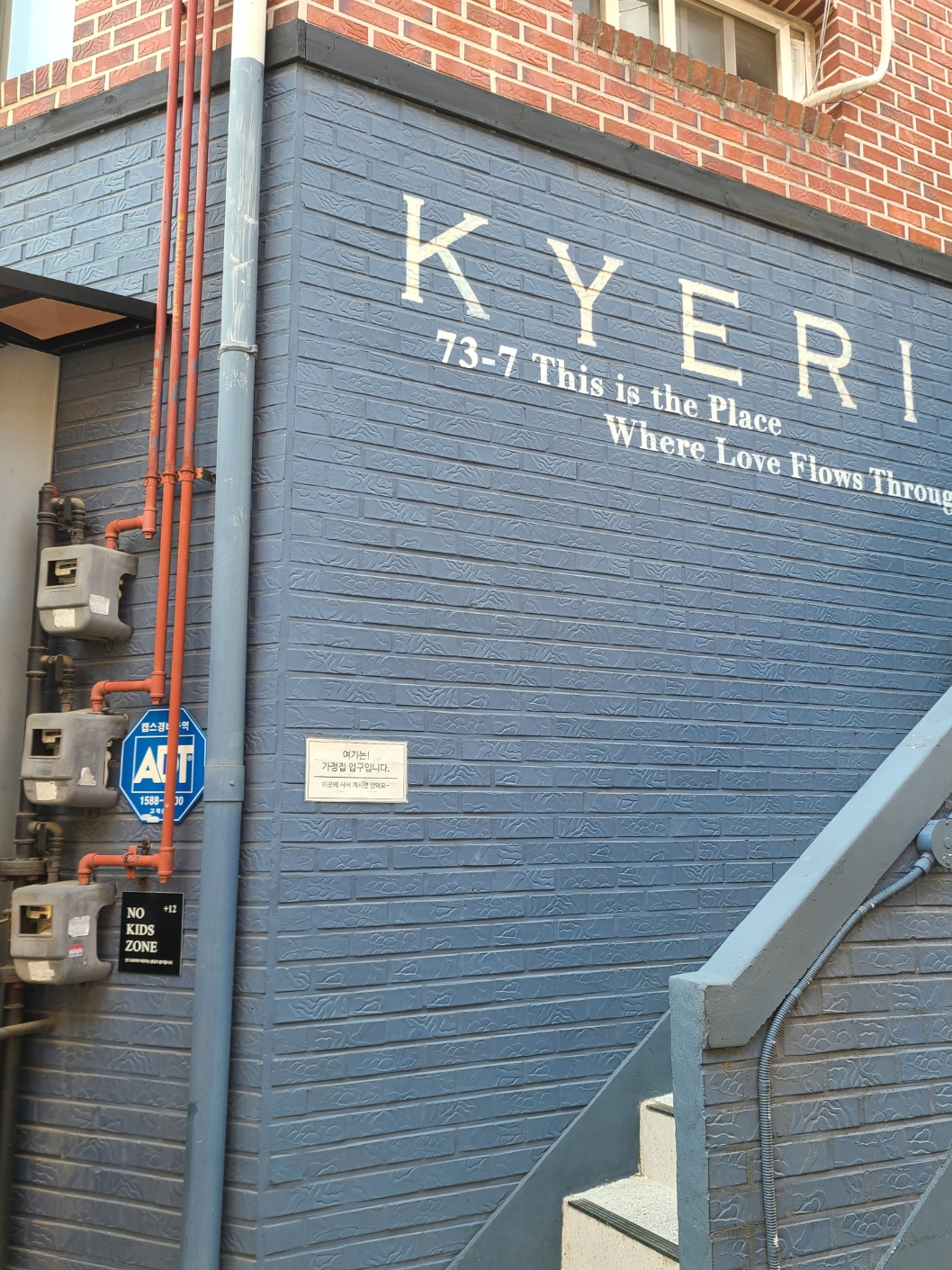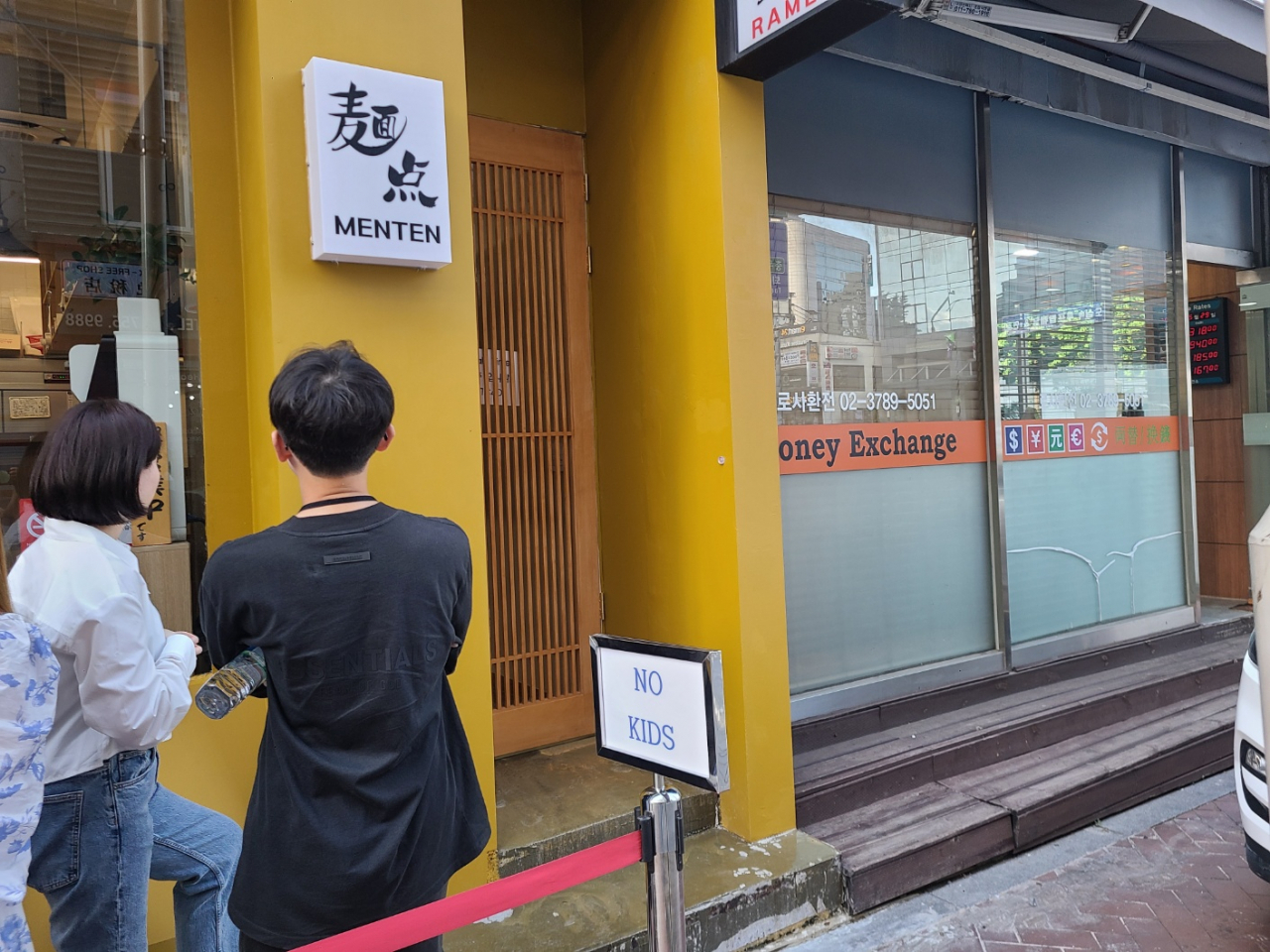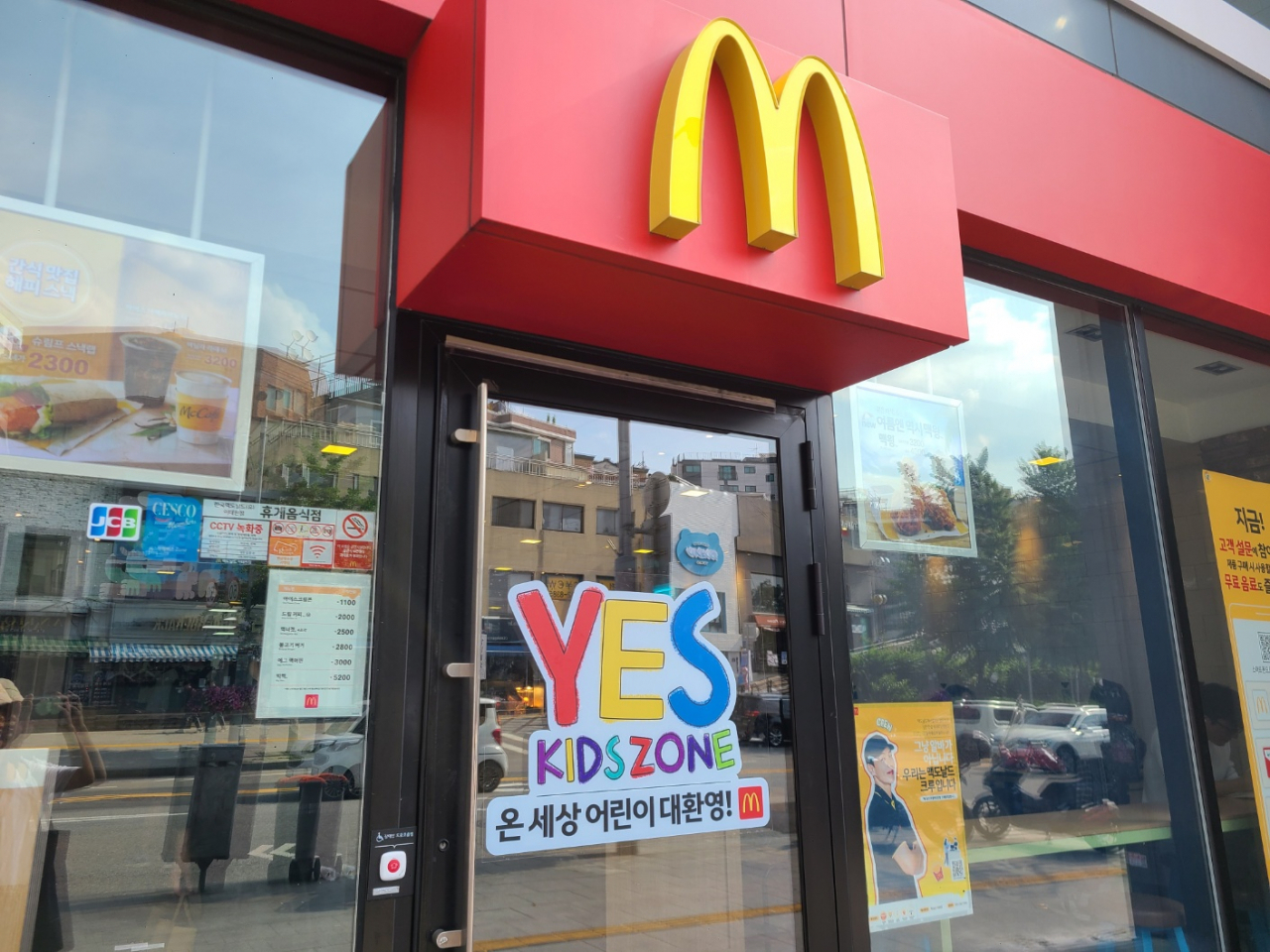
One of the most popular cafes located in Itaewon, Seoul, is off-limits to guests aged 12 and under.
"Our cafe wasn't a no-kids zone at the beginning," the owner of Cafe Kyeri told The Korea Herald in an interview on May 31.
The cafe, located on the edge of the district, aims to provide a quiet and relaxing environment for visitors. That is why it decided to restrict children from entering the venue six years ago, the owner explained.
"We would love to have children at the cafe, but we had some incidents in the past where irresponsible parents failed to warn their children about respecting the atmosphere of our place," the owner said.
Cafe Kyeri is among some 451 private restaurants and cafes across South Korea identified as "no-kids zones," according to a Google Map service edited by an anonymous user. The list of venues does not include nightclubs and bars, where children are normally prohibited from entering.
The number of such business establishments has grown exponentially in recent years, ironically, in a country that bemoans its continually declining birth rate. The country’s fertility rate -- the average number of children born to a woman in her reproductive years -- is the lowest among the 38 member countries of the Organization for Economic Cooperation and Development.
As of 2023, this sort of child exclusion is an issue that has Korea -- and its population of 51 million -- divided.
Some say it’s blatant discrimination against a certain group of people and won’t help the country’s ongoing effort to boost births. Others say it is the right of business owners to provide a "sophisticated” atmosphere exclusively for adults.
'Unruly' kids, 'irresponsible' parents

Business owners who opt not to allow children in their establishments often cite concerns about the potential risks associated with unpredictable behavior exhibited by some children.
Should accidents involving such children occur on the premises, courts tend to be not favorable toward the business owners, they say.
In 2008, a Daegu district court ordered the owner of a Korean barbecue restaurant to pay 11 million won ($8,300) in compensation to a 24-month-old child and the child's parents. The child suffered burns after colliding with an employee at the restaurant who was moving a grill. The court found both parties at fault, noting that the child was moving around inside the restaurant, and that the employee also should have been more aware of their surroundings.
This decision was followed by a 2013 ruling by a Busan district court in which it ordered the employer and an employee of a restaurant to pay 41 million won to the parents and their 10-year-old child in damages over a similar incident in 2011.
The employee accidentally spilled hot water on the child after crashing into the child, who was running towards a playroom installed within the venue. The court said the employer and the employee were 70 percent at fault for the child's burns.
Legal issues are one reason for restaurants and cafes to go "kid free," but some choose the path to cater to their own or customers' personal preferences.
"My restaurant is a no-kids zone, not because I don't want children dining in it, but because it doesn't have enough seats, and I don't think the menu is appropriate for children to eat," the owner of Menten, a Japanese-style ramen restaurant in Myeong-dong said, on condition of anonymity.
"My ramen is just too spicy for children," the owner said.
Supporting the business owners' decision to implement a kids-free policy is a portion of the population which complains about certain parents who fail to supervise their unruly children in public spaces.
According to a survey released last month by local research group Embrain, 61.9 percent of Koreans believe it is acceptable to have no-kids zones in the country. Of married couples with children, 53.6 percent said such policies are acceptable. The study surveyed 1,000 Korean nationals aged 18 and older.
As for the reasons behind such views, the largest number of respondents -- over 62 percent -- pointed to "parents who fail to control their children." Another popular answer was customers’ "right not to be disturbed (by children)."
Embrain's researchers said the survey suggests there is a significant level of public dissatisfaction towards parents who struggle to keep control over their children. Therefore, no-kids zones may be a way to address such complaints and resolve issues before they arise.
Discrimination, exclusion

While more restaurants and cafes have been adopting such exclusionary policies towards children, in 2017, the National Human Rights Commission of Korea ruled such practices as acts of discrimination.
"The rights of children not to face discrimination take precedence over the rights of business owners," it said.
While the human rights commission’s view carries influence in the public discourse, it is not legally binding.
As such, some politicians have initiated campaigns to abolish no-kids zones by law.
Liberal members of Jeju Island’s Local Council proposed an ordinance last month that aims to ban no-kids zones in the province.
Jeju Island has a total of 78 no-kids zones, according to the state-affiliated Jeju Research Institute.
However, the chances of the ordinance passing appear slim, with other members opposing it on the grounds that it breaches the key legal principle that an ordinance cannot restrict an individual's rights without proper justification or authorization from a higher level law.
The Jeju Island councilors’ idea of banning no-kids zones may be a little too extreme to win broad support, but many in political circles, across academia and in civil society share the view that the current situation is problematic for various reasons, and could hinder the country’s effort to create a more inclusive, family-friendly culture.
Last month, Rep. Yong Hye-in of the minor progressive Basic Income Party said many private and even public venues now have adopted no-kids policies, despite not having reasonable grounds to do so.
“Today, many popular cafes and restaurants on Instagram and even public libraries have become inaccessible to children without justifiable reasons,’” Yong said during a speech at the National Assembly in Seoul, while carrying her 23-month-old son in her arms, claiming that the National Library of Korea is one example of that.
“What we want is a society that embraces not only the fast and the competent, but also the slow and the inexperienced. In order to overcome one of the lowest fertility rates in the world, we must first change the kind of society that rejects caregivers and children,” she explained.
Koo Jeong-woo, a sociology professor at Sungkyunkwan University, says the existence of such zones not only isolates children but also mothers in Korean society.
"On the surface, no-kids zones constitute discrimination against children, but they actually discriminate against mothers at their core," Koo said in an interview with The Korea Herald.
"Managing children's behavior in public places should be a personal matter and not something to be regulated by such zones," he said.





